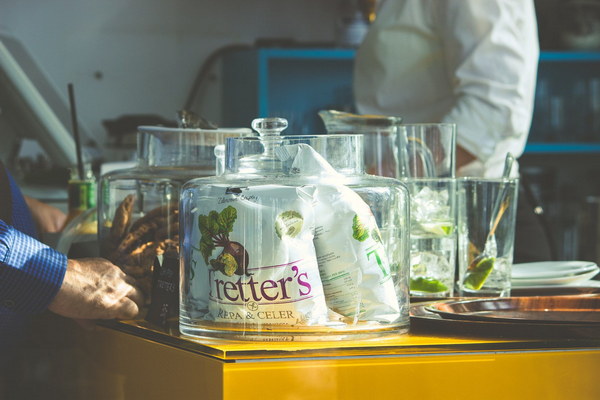Harmonizing Intestinal and Liver Health A Holistic Approach to Internal Wellbeing
In the quest for overall health and vitality, the interconnected relationship between the digestive system and the liver often goes overlooked. The adage You are what you eat is more than a catchy phrase; it underscores the fact that the health of our internal organs, particularly the liver and intestines, plays a pivotal role in our well-being. This article delves into the concept of Harmonizing Intestinal and Liver Health, exploring the importance of this holistic approach to internal well-being.
The Liver: The Body's Biochemical Factory
The liver is often referred to as the body's biochemical factory, responsible for over 500 vital functions. Among its many roles, the liver filters toxins from the blood, produces bile to aid in digestion, and metabolizes nutrients. When the liver is healthy, it can effectively process and eliminate waste products, ensuring that our bodies remain free from harmful substances.

The Intestines: The Gateway to Nutrient Absorption
Conversely, the intestines are the gateway through which nutrients are absorbed into the bloodstream. They also play a crucial role in the immune system and the production of certain vitamins. A healthy intestinal environment is essential for the absorption of nutrients, the prevention of malnutrition, and the maintenance of a robust immune response.
The Interplay: How Liver and Intestines Are Connected
The liver and intestines are inextricably linked through a complex web of physiological processes. For instance, the liver produces bile, which is stored in the gallbladder and released into the intestines to aid in the digestion of fats. Bile also helps to emulsify fats, making them more accessible to the digestive enzymes that break them down.
Moreover, the intestines are home to a vast population of beneficial bacteria, known as the gut microbiota. These bacteria play a vital role in fermenting dietary fibers, producing vitamins, and synthesizing certain amino acids. A healthy gut microbiota can also influence the liver's function by helping to metabolize drugs and toxins.
The Challenges: How an Unbalanced System Affects Health
When the balance between the liver and intestines is disrupted, a myriad of health issues can arise. Poor digestion can lead to nutrient deficiencies, while an overburdened liver may struggle to filter out toxins effectively. This can result in a range of problems, from fatigue and digestive disorders to skin issues and chronic inflammation.
The Solution: A Holistic Approach to Intestinal and Liver Health
To maintain optimal health, it is crucial to adopt a holistic approach that addresses both the liver and the intestines. Here are some strategies to consider:
1. Dietary Choices: A diet rich in fiber, lean proteins, and healthy fats can support both liver and intestinal health. Foods like leafy greens, nuts, seeds, and whole grains are excellent choices.
2. Hydration: Adequate water intake is essential for the liver's detoxification process and for maintaining bowel regularity.
3. Supplements: Certain supplements, such as milk thistle, artichoke extract, and probiotics, may help support liver function and promote a healthy gut microbiota.
4. Regular Exercise: Physical activity can improve circulation, aid in digestion, and reduce stress, all of which are beneficial for liver and intestinal health.
5. Stress Management: Chronic stress can impact both the liver and intestines. Techniques such as meditation, yoga, and deep breathing exercises can help manage stress levels.
6. Regular Check-ups: Routine health screenings can help detect any issues early and allow for timely intervention.
Conclusion
In conclusion, the health of the liver and intestines is integral to our overall well-being. By adopting a holistic approach that encompasses dietary choices, lifestyle modifications, and regular health screenings, we can ensure that both organs function optimally. Remember, taking care of your internal organs is an investment in your long-term health and vitality.









